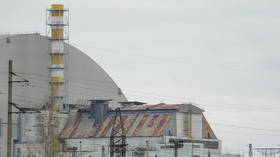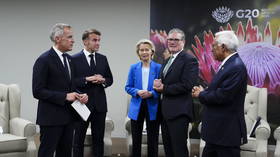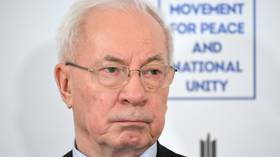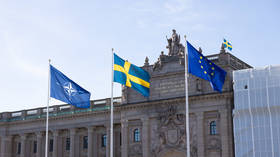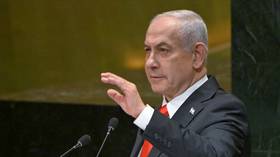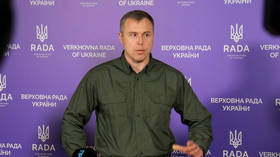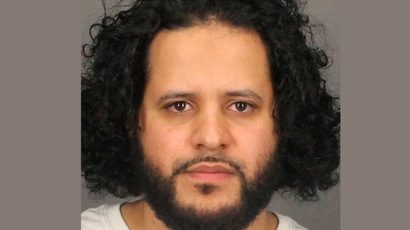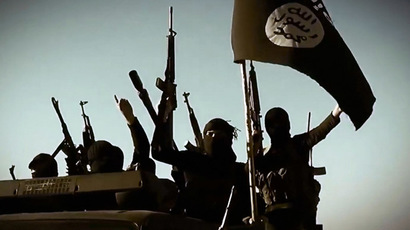'Brainwashed' British fighter reportedly killed by US drone strike in Syria
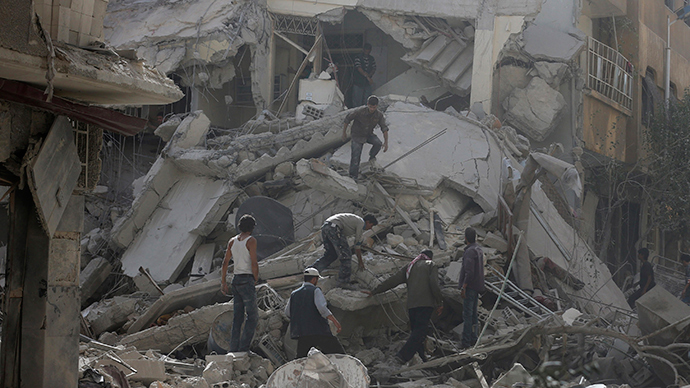
A British teenager fighting with Islamist militia Al-Nusra Front in Syria has reportedly been killed in US airstrikes, with his mother finding only finding out via social media.
Ibrahim Kamara, 19, who was living in Brighton and was known by the kunya (Islamic name) Khalil al Britani, traveled to Syria in February. According to another fighter who knew him, Abu Imaad As Sandzaki, from Sweden, Kamara had been killed by a US drone in Aleppo.
“He wanted to contribute to the jihad in Syria,” Sandzaki told the Guardian.
Sandzaki, who is no longer fighting in Syria, told the Guardian that he found out about Kamara’s death following a phone call from another Al-Nusra fighter.
Kamara journeyed to the region with three brothers from Brighton to fight for the Al-Qaeda-linked group, which is engaged in combat with the Syrian army and opposition militia groups including the ‘Islamic State’ (IS/ISIS/ISIL)
A picture posted on Facebook on Tuesday night appears to show Kamara in a body bag, parts of his face and body covered in sand and blood.
19 Year Old Khalil al-Britani Was Reportedly Killed by U.S. Airstrikes in #Syria#ISIS#Daeshpic.twitter.com/Y4ON53cR1q
— ܐܪ̈ܡܝܐ (@IraqiSuryaye) September 25, 2014
Other suspected jihadist fighters also posted tributes to Kamara on social media sites including Twitter, including Amer and Jaffer Deghayes, brothers from Brighton who were among the first Britons to be identified as fighting in Syria.
“May Allah Accept You Ibraheem Kamara. What an honor, he always use [sic] to tell me he wants to catch up with my brother Abdullah” Amer posted on his social media page.
However, RT has not been able to independently confirm that the image is of Kamara.
The Foreign and Commonwealth Office said that it was aware of reports that a British man had been killed by airstrikes, but could not make any confirmations as of yet.
‘I was close to disowning him’
Kamara’s mother, Khadija Kamara, who runs a charity that helps victims of war in Sierra Leone, found out about her son’s death on social media, according to the Guardian.
Mrs. Kamara, who arrived in the UK with her family from Sierra Leone in 2004, also told the newspaper that she knew the young man would die when she found out he had gone to Syria.
While she said she was “close to disowning” her son, British police encouraged her to continue contact with him on the internet.
“I cried when I could not do anything about it. I cried then. What’s left to cry now? He’s gone. I have three other boys, I have to be strong for them” she said.
She also said she was ‘stunned’ by how fast her son was radicalized, saying that the imam of their local mosque in Brighton was unable to sway him from his views.
“It all happened so fast. He was just a normal boy, going to school, playing football. He wasn’t disrespectful. He just met the wrong people” she said.
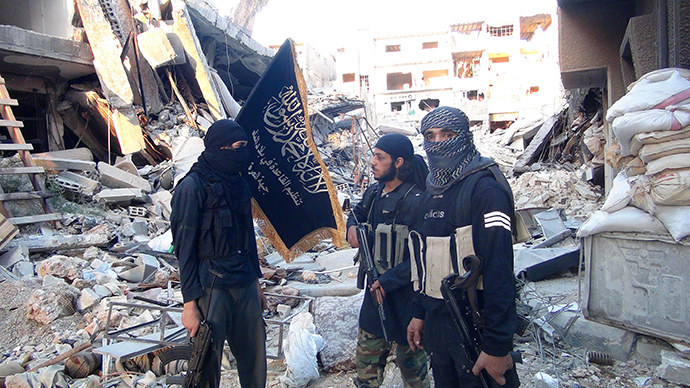
Additionally, Mrs. Kamara told ITV news she was angry at "whoever was behind this brainwashing of my son" adding that “she couldn't imagine a member of my family could even think about this kind of thing."
She also said that her son had entered Syria after stealing his brother’s passport.
US Airstrikes & Blowback
According to social media reports, around 50 fighters from Al-Nusra Front were killed by the first round of US-led airstrikes, which were conducted earlier this week.
The reports also suggest that at least 14 ISIS fighters were killed during the airstrikes, while the Britain-based Syrian Observatory for Human Rights said that the strikes took out more than 20 ISIS strategic bases, most being in the groups’ headquarters of Raqqa.
Strikes were also carried out on the towns of Tabqa, Ein Issa and Tel Abayad on the Turkish border.
The government estimates that between 500 and 1,000 British Muslims are currently fighting in Syria, although it is not clear how many have joined the different militant groups in the region.
According to a new report published on Thursday from the University of London, young British Muslims whose families have lived in the UK for ‘generations’ are more at risk of becoming radicalized than recent migrants.
The report was produced after interviewing more than 600 Muslim men and women aged 18-45, who were questioned about their personal and political views. Their risk of radicalization was measured based on how much they sympathized with or condemned militant actions.


